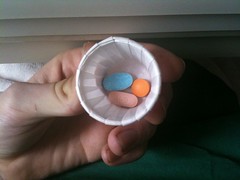
USA Today reports on a recent study that provides evidence for a “July effect” when it comes to medical mistakes.
The so-called July effect has long been suspected. It’s based on the fact that new U.S. doctors start their residencies (in-hospital training) each July 1 in thousands of “teaching hospitals” nationwide. But until recently, the idea that hospitals are especially dangerous in July was little studied.
Other studies have found no such effect when it comes to major surgical mistakes, but this new study hones in on another area of concern:
“It looks like medication error is the place to worry” about a July effect, says David Phillips, a sociologist at the University of California-San Diego. He reviewed 62 million deaths between 1979 and 2006 and focused on 244,388 fatal drug errors. The study found no spike in such deaths outside of hospitals or in counties without teaching hospitals.
And, Phillips says, he found no sign such deaths were decreasing amid rising concerns about patient safety and residents’ long work hours (which were cut in 2003). More study is needed, he says, to see if non-fatal drug errors also rise in July.
Phillips was also interviewed on NPR and discussed some potential contributors to the July effect. In addition to being inexperienced and overtired, medical residents may make more mistakes because they tend to work alone. Phillips contrasts this with surgical residents who, although also tired and inexperienced, tend to work in teams. This factor may help prevent a similar spike in surgical errors during July.

Comments